Filter by
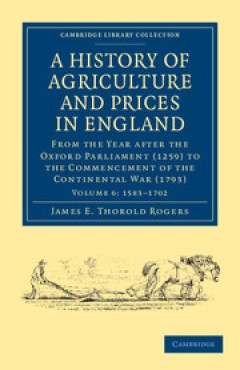
A History of Agriculture and Prices in England
Since early times, agriculture has been pivotal to England's economy. This is the seventh in a magisterial seven-volume, eight-piece compilation by the economist James E. Thorold Rogers (1823–90), which represents the most complete record of produce costs in England between the thirteenth and eighteenth centuries. Drawing on a variety of sources including college archives and the Public Recor…
- Edition
- Arthur G. L. Rogers
- ISBN/ISSN
- 9781139094832
- Collation
- -
- Series Title
- -
- Call Number
- -
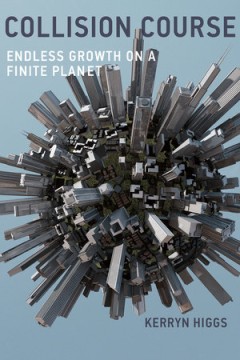
Collision course : endless growth on a finite planet
The story behind the reckless promotion of economic growth despite its disastrous consequences for life on the planet.OCLC-licensed vendor bibliographic record.
- Edition
- -
- ISBN/ISSN
- 9780262320917
- Collation
- 1 online resource (xxv, 384 pages)
- Series Title
- -
- Call Number
- -
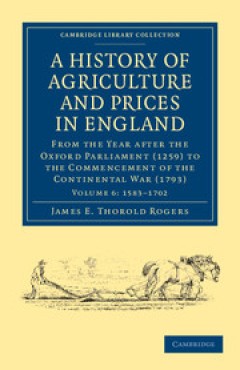
A History of Agriculture and Prices in England
Since early times, agriculture has been pivotal to England's economy. This is the sixth in a magisterial seven-volume, eight-piece compilation by the economist James E. Thorold Rogers (1823–90), which represents the most complete record of produce costs in England between the thirteenth and eighteenth centuries. Drawing on a variety of sources including college archives and the Public Record …
- Edition
- -
- ISBN/ISSN
- 9781139094825
- Collation
- -
- Series Title
- Cambridge Library Collection - British and Irish History, General
- Call Number
- -
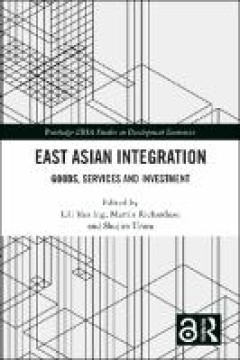
East Asian Integration
- Edition
- -
- ISBN/ISSN
- 9780429782497
- Collation
- -
- Series Title
- -
- Call Number
- 337.15
- Edition
- -
- ISBN/ISSN
- 9780429782497
- Collation
- -
- Series Title
- -
- Call Number
- 337.15
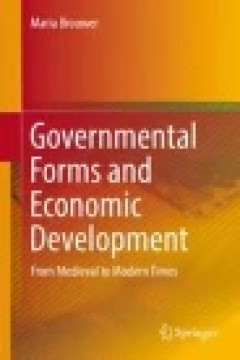
Governmental Forms and Economic Development from Medieval to Modern Times
This book investigates the performance of economic development under different forms of government, ranging from autocratic states to liberal democracies. Starting with a critical review of the literature on social and economic development, including the works of Frank Knight, Max Weber, Joseph Schumpeter and Peter Drucker, it offers a historical analysis of the expansion of markets, cities and…
- Edition
- -
- ISBN/ISSN
- 978-3-319-42039-4
- Collation
- X, 352
- Series Title
- -
- Call Number
- 330 GOV g
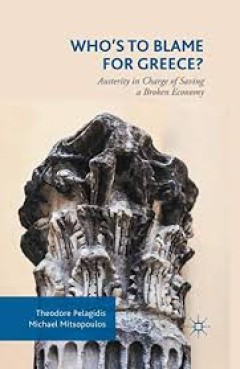
Who’s to Blame for Greece? Austerity in Charge of Saving a Broken Economy
Greece's economy symbolizes in many ways the Eurozone's economic problems and divergent interests as it amasses most of the economic disadvantages characterizing the Eurozone's economy itself. This book presents the economic and political challenges to Greece and the EU member states.
- Edition
- -
- ISBN/ISSN
- 978-1-137-54920-4
- Collation
- -
- Series Title
- -
- Call Number
- -

Building the new economy :data as capital
"This book proposes blockchain-based currencies, open algorithms, and data cooperatives as the foundation of a new economy that is decentralized, resilient, and secure"--OCLC-licensed vendor bibliographic record.
- Edition
- -
- ISBN/ISSN
- 0262367408
- Collation
- 1 online resource.
- Series Title
- -
- Call Number
- -

Misfortunes of Prosperity :an Introduction to Modern Political Economy.
Elucidates the current debates on these and other questions in a fast-paced and incisive tour of the dominant ideas in political economy, summarizing historical and theoretical perspectives on the causes of economic growth in the United States, Western Europe, Japan and elsewhere as the twentieth-century draws to a close.Translated by Jacqueline Lindenfeld Are robust economic growth and tight s…
- Edition
- -
- ISBN/ISSN
- 9780262270588
- Collation
- 1 online resource (178 pages)
- Series Title
- -
- Call Number
- -
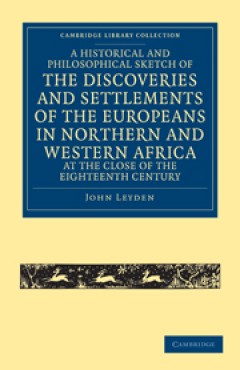
A Historical and Philosophical Sketch of the Discoveries and Settlements of t…
lthough he had never set foot in Africa, Scottish poet and linguist John Leyden (1775–1811) decided to publish in 1799 this compilation on 'discoveries and settlements' there, drawing from the published works of explorers. His aim was 'to exhibit the progress of discoveries at this period in North and West Africa', giving descriptions of places such as Guinea, the Gold Coast, and Sierra Leone…
- Edition
- -
- ISBN/ISSN
- 9781139058759
- Collation
- -
- Series Title
- Cambridge Library Collection - African Studies
- Call Number
- -

Ten crises: the political economy of China’s development (1949-2020)
This open access handbook, Ten Crises systematically traces the economic history of China from 1949 to 2020, unravelling the complex domestic and global factors leading to the cyclical crises identified by WEN and his research team, and examining the corresponding counteracting policies and measures by the government to resolve or defer the crises. The book offers profound insights into China�…
- Edition
- -
- ISBN/ISSN
- 9789811604553
- Collation
- xxxii, 510p: ill..
- Series Title
- -
- Call Number
- 338
 Computer Science, Information & General Works
Computer Science, Information & General Works  Philosophy & Psychology
Philosophy & Psychology  Religion
Religion  Social Sciences
Social Sciences  Language
Language  Pure Science
Pure Science  Applied Sciences
Applied Sciences  Art & Recreation
Art & Recreation  Literature
Literature  History & Geography
History & Geography